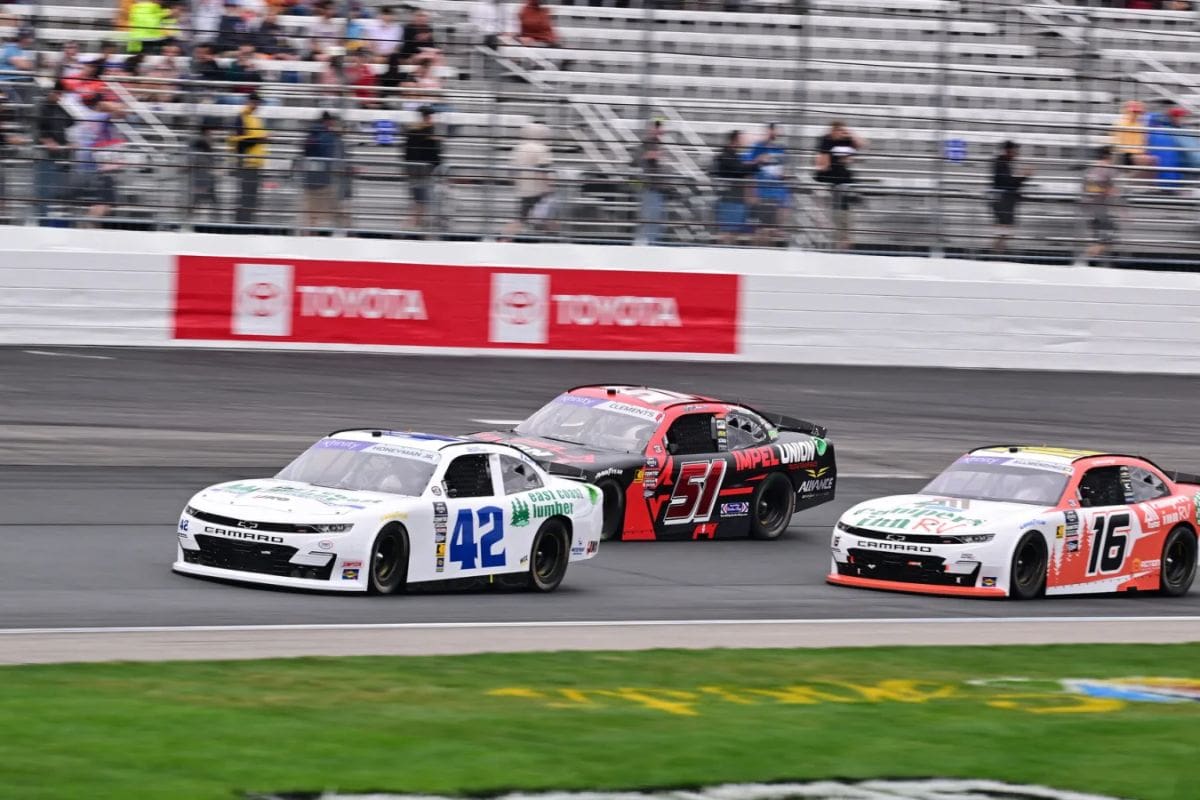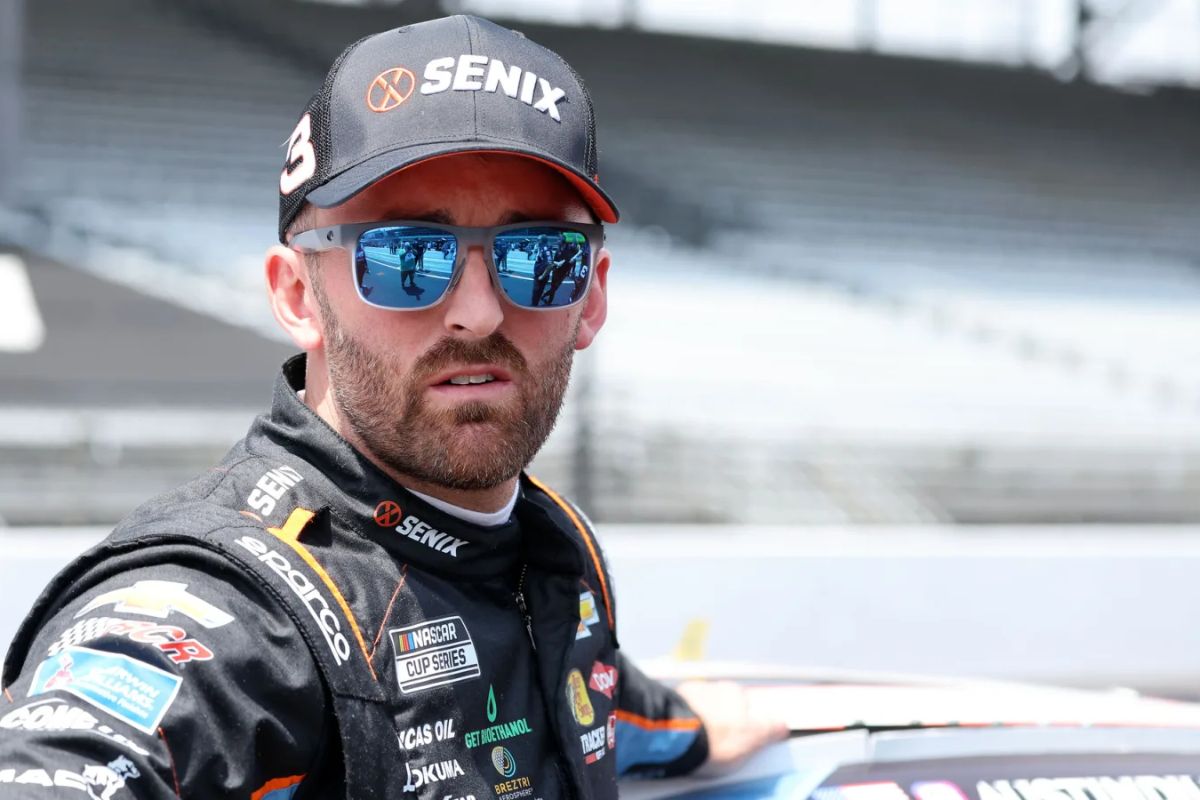Austin Dillon’s Playoff Spot at Risk: The recent developments surrounding Austin Dillon‘s victory at Richmond have ignited a complex debate regarding the integrity of racing and the stress drivers face in pursuit of playoff positions. Dillon’s aggressive tactics during the late caution period secured him a contentious win and raised critical questions about the boundaries of competitive behavior. As NASCAR assesses the implications of this incident, the potential consequences for Dillon’s playoff eligibility and the overarching principles of sportsmanship are at stake. What will this mean for the future of racing ethics and the drivers involved?
Key Highlights
- Austin Dillon’s aggressive tactics during the Richmond race raised questions about the legitimacy of his victory and its impact on playoff eligibility.
- NASCAR’s rulebook allows for disqualification due to violations, which could jeopardize Dillon’s position in the playoffs.
- A late caution flag altered race dynamics, giving competitors like Daniel Suarez a chance to challenge Dillon’s lead.
- Dillon’s controversial actions, including spinning out Denny Hamlin, ignited debates on racing ethics and sportsmanship.
- The anticipated NASCAR ruling on Dillon’s actions may set important precedents for future conduct in the sport.
NASCAR’s Rulebook and Possible Outcomes
In the context of the recent controversy surrounding Austin Dillon’s finish at Richmond Raceway, NASCAR’s rulebook takes center stage in evaluating potential outcomes. The crux of the issue lies in the stipulation that race finishes must be “unencumbered by violation(s) of the NASCAR Rules or other action(s) detrimental to stock car auto racing or NASCAR.” This clause, as emphasized by FOX Sports’ Bob Pockrass, indicates that NASCAR retains broad discretion in determining the implications of any violations.
Should NASCAR adjudicate Dillon’s actions as harmful to the sport, the consequences could extend beyond mere disqualification from the race results. While Dillon may technically retain his victory, the associated playoff spot could be forfeited, greatly impacting his competitive standing. This scenario highlights the rulebook’s role as a governing document, which not only delineates acceptable conduct but also serves as a mechanism for maintaining the integrity of the sport.
Moreover, the subjective nature of terms like “detrimental” introduces an element of unpredictability in NASCAR’s decision-making process. The organization must weigh the impact of Dillon’s actions not only on the race at hand but also on the broader narrative of fair competition within the league.
As stakeholders await the ruling, the interplay between the rulebook and NASCAR’s enforcement mechanisms emphasizes the complexities of governance in professional motorsports. Ultimately, the decision may set a precedent that could influence future races and the interpretation of the rulebook itself.
How the Controversial Finish Unfolded
The controversy surrounding Austin Dillon’s playoff eligibility stems from a dramatic turn of events during the race at Richmond Raceway. With just two laps remaining, Dillon had established a commanding three-second lead, seemingly on his way to a crucial victory that would solidify his position in the playoff standings.
The landscape shifted abruptly when a caution flag was waved due to a multi-car incident involving Ricky Stenhouse Jr. and Ryan Preece, forcing the race into overtime.
This unexpected turn of events not only disrupted Dillon’s momentum but also introduced a level of uncertainty that reverberated through the field. The caution allowed competitors, particularly Daniel Suarez, to close the gap, as he had been making considerable strides on fresh option tires.
This scenario is critical in NASCAR, where the dynamics of a late caution can alter the path of a race and impact playoff qualifications.
As the cars regrouped for the restart, the implications of the caution became clear. Dillon, once in a position of strength, now faced the intimidating challenge of maneuvering through a high-pressure, unpredictable overtime scenario.
The outcome would hinge not just on speed but also on strategy and execution in a race environment where the stakes were heightened. Consequently, the finish at Richmond exemplified how quickly fortunes can change in NASCAR, casting a shadow over Dillon’s playoff aspirations and fueling the ongoing debate regarding the fairness of such late-race cautions.
Dillon’s Actions in Overtime
Austin Dillon’s aggressive tactics during the overtime period of the Richmond race highlighted his resolve to secure a playoff spot at any cost. Faced with an unfavorable restart that allowed Joey Logano to gain the upper hand, Dillon swiftly recalibrated his strategy. Recognizing the urgency of his situation, he opted for a more assertive approach, which ultimately led to a controversial outcome.
Dillon’s decision to rear-end Logano and send him spinning was representative of the high-stakes nature of the race. The move, while risky, was calculated; it emphasized Dillon’s understanding of the cutthroat dynamics at play. By eliminating Logano, he not only regained a competitive edge but also sent a clear message about his resolve. This action, however, was not without repercussions, as it immediately drew the ire of fans and competitors similarly.
In the closing moments, Dillon faced yet another challenge from Denny Hamlin, who was poised to steal the lead. Once again, Dillon’s instincts took over. In a decisive act of aggression, he made contact with Hamlin, spinning him out just before the finish line. This subsequent move solidified Dillon’s victory, showcasing his ability to capitalize on critical moments, albeit through controversial means.
Aftermath and Fan Reactions
Although Dillon’s aggressive tactics secured him a playoff spot, they sparked widespread debate among fans and analysts regarding the ethics of his actions. The NASCAR community is now grappling with a complex moral quandary: should such tactics be tolerated in pursuit of victory? Dillon’s navigation during the Richmond race, which some deemed reckless, has raised questions about the integrity of competition in the sport.
Joey Logano’s furious response post-race exemplified the heightened emotions surrounding Dillon’s actions. His display of anger—revving his engine on pit road and confronting Dillon—underscored the divisive nature of this incident. Fans swiftly divided into two camps: those who applauded Dillon’s tactical brilliance and others who condemned his approach as detrimental to the sport’s ethical fabric.
The anticipated NASCAR ruling on this incident is poised to further ignite discussions. Should the governing body impose penalties, it may signal a strict stance against aggressive driving tactics. Conversely, a lack of repercussions could embolden similar behavior in future races, potentially leading to a culture of recklessness.
This episode highlights an ongoing dilemma in motorsports: the balance between fierce competition and sportsmanship. As fans and analysts await NASCAR’s decision, the broader implications of Dillon’s actions will likely resonate throughout the remainder of the season, shaping not only playoff dynamics but also the evolving narrative of NASCAR ethics.
News in Brief: Austin Dillon’s Playoff Spot at Risk
The controversy surrounding Austin Dillon’s victory at Richmond highlights the complex interplay between competitive strategy and ethical conduct in NASCAR. The aggressive tactics employed during the late-race caution have raised important questions regarding the legitimacy of the win and the potential ramifications for Dillon’s playoff eligibility. As NASCAR reviews the incident, the outcome may not only determine Dillon’s future but also establish crucial precedents for sportsmanship and competitive integrity within the sport.
ALSO READ: Austin Dillon Admits Spotter Mistake in Desperate Attempt to Escape NASCAR Penalty



